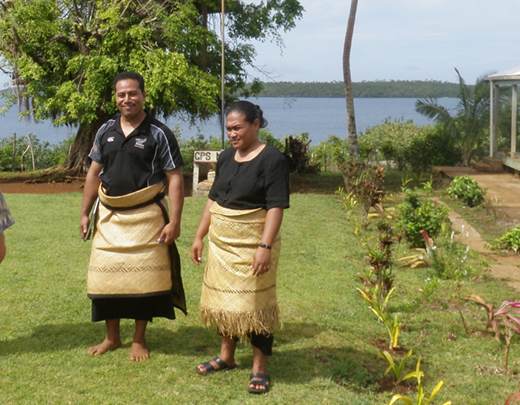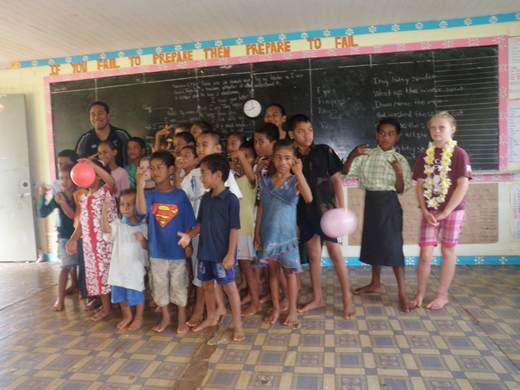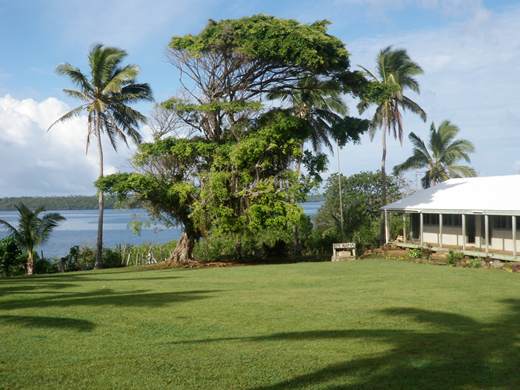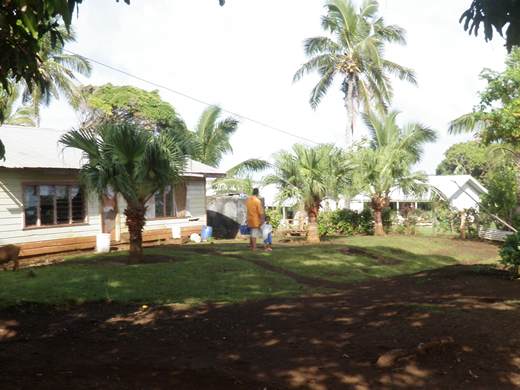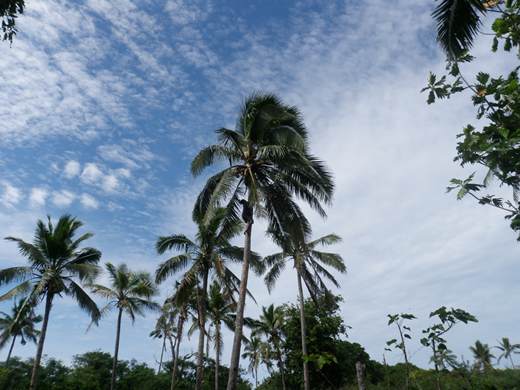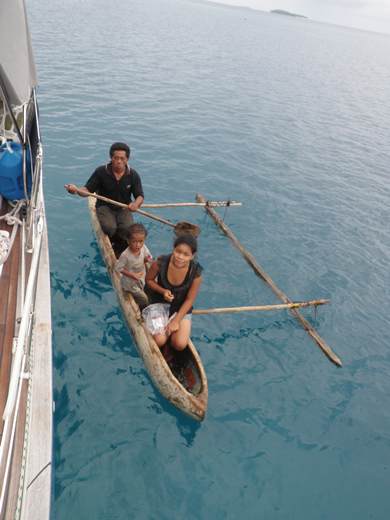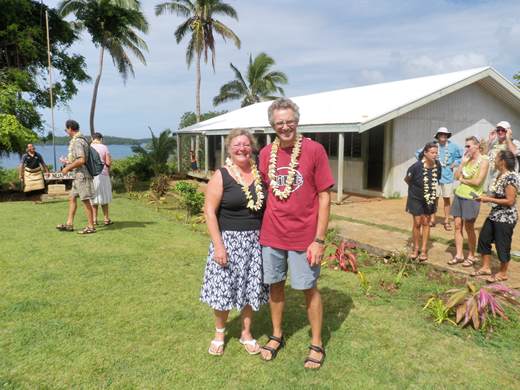Tonga S18 42 W 174 02

|
We have now been here a week and we can see why it has been chosen by a couple of Charter companies. The islands in the northern Vava'u group protect some wonderful cruising waterways with flat seas, numerous anchorages and wonderful humpback whales. Captain Cook called these the Friendly Islands and the name still really suits. People here are as friendly as everywhere in Polynesia but with a Tongan twist. For instance the people, men and women, old and young, wear a sort of grass mat around their middles that shows respect to others, especially visitors.
This photograph shows the headmaster and teacher from a tiny school on the island of Nuapapu. We were invited to visit the school, along with some other cruisers, by the headmaster who we believe had been sent there to raise standards. The children put on a short song and dance routine for us and then one by one introduced themselves in English, after which we then had to do the same. Lorraine even taught them a song, remembered from her playgroup days.
The school has an idyllic location in the pretty village at the top of the hill overlooking our anchorage.
The people here are some of the poorest we have seen in Polynesia, with no mains electricity, TV, mains water or presumably drainage. They are subsistence farmers and fisherman with very few people, if any, having a paid job. The women weave attractive basketware and make jewellery from shells, bone and coral from the reefs, both men and women carve wooden artefacts and this provides the families with a little disposable income. The problem the head teacher has is raising aspirations..... although one wonders if that is necessarily a good thing. So much of the lives of these people is right, with the emphasis on family and community, and respect being a key part of their belief system. They are certainly in harmony with their environment.
However they are very poor and we do not know if there is much in the way of health care or what the average age of death is.
Here a 13 year old boy shins up a tree for us to provide drinking nuts.
This man and his 2 children came to sell us things from his boat and he clearly was genuinely poor. One wonders what the future holds for them all.
Many of the Poynesians we have met appear to lack entrepreneurial flare because this has never been part of their culture which is one of sharing what they have. This means that very few of the businesses we have seen are owned by locals. The tourist shops and bars are mostly owned by expats (usually New Zealanders in Tonga) and the shops mostly by the Chinese. It can be very confusing when using local services because the Tongans do not like to say No. So if you ask for something they will say yes...even if they have not got what you want. So Yes can mean Maybe , Perhaps, In a few days or even No. In the restaurants and bars this all takes some getting used to but it is what makes the Tongans who they are, generous and happy people. You have to help them to say no by suggesting that you come back another time, or ask if they are out of stock, or shall you come back when the boss is next there. They usually sigh with relief when this resolve is offered. Time schedules have a similar scenario. They use the word FakaTongan – the Tongan way. Interestingly there are “fakaleidis” here as there were in French Polynesia. These are the men who are brought up as girls from an early age and usually dress as women, some very attractive to boot. The explanation is slightly different to that which we heard in French Polynesia. Here the story is that mothers bring up one son as a girl if there are few or no girls in the family so that there is someone to share in the domestic duties. Many of these men serve in restaurants and shops.
Visiting the school.
|
